1. No Elbows on the Table

If you even thought about resting your elbows on the table, you’d get a sharp glance that sent chills down your spine. Somehow, having your arms bent at the wrong angle was a sign of poor manners, and the grown-ups took it seriously. The worst part was when you forgot and got caught mid-bite, frozen like a deer in headlights. You’d quickly drop your arms and pretend nothing happened, but it was already too late says MSN. The look had been delivered. Some families even had a verbal warning to go along with it—usually something like, “Are you lounging at the table?” or the classic, “Sit up straight!”
What made it more frustrating was that no one could ever explain why this was such a big deal. Was it a sign of laziness? Did it signal disrespect? It was one of those rules you followed because it was just how things were done, even if it didn’t make much sense. And if you dared to question it? Another look shares Southern Living.
2. No Talking with Your Mouth Full

It didn’t matter if you had the juiciest piece of gossip or the funniest story of the day—if you tried to talk mid-chew, you were met with instant disapproval. Someone would either make a disgusted face, dramatically mime chewing with their mouth closed, or just deliver a simple but deadly “Swallow first.” And if something actually flew out of your mouth? Forget it. You might as well leave the table in shame says Reader’s Digest.
The irony was that the same people enforcing this rule were often the ones who talked the most during dinner. They’d ask you a question right as you took a bite, then stare expectantly while you struggled to chew at record speed. It was a no-win situation, but at least you learned to time your bites wisely says EatingWell.
3. Chew with Your Mouth Closed
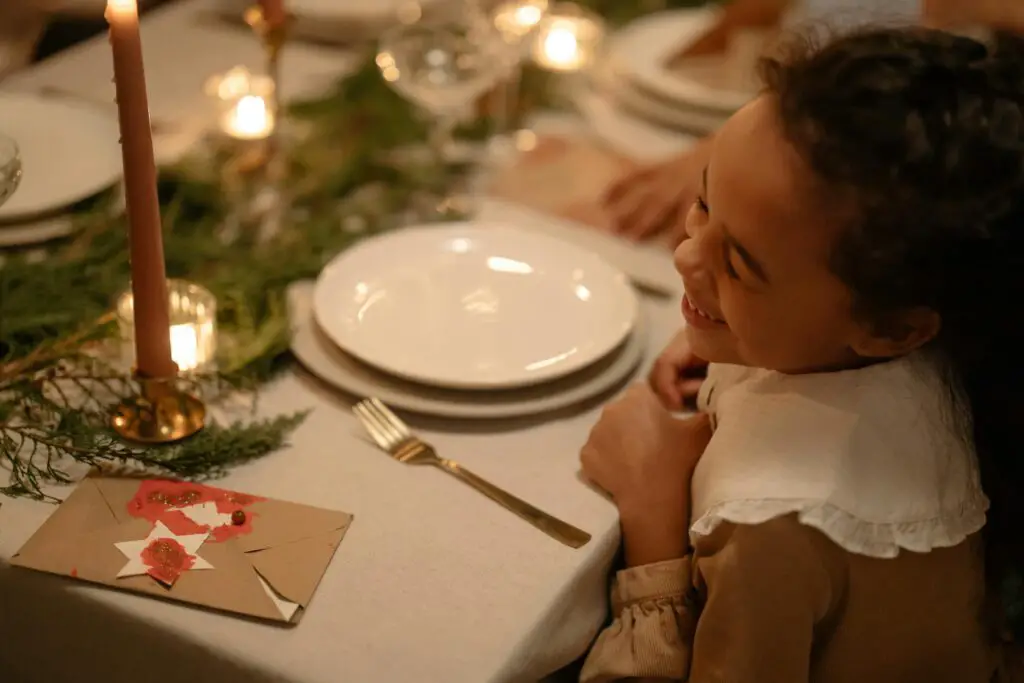
There was no faster way to ruin someone’s appetite than smacking, chomping, or—worst of all—letting someone see the half-mushed food inside your mouth. The look you got for this was often a mix of disgust and disbelief, as if you had personally offended everyone at the table. And if you were a repeat offender? You’d probably get an impromptu lesson on proper chewing techniques, complete with exaggerated demonstrations.
No one wanted to be the loud chewer in the family, so you learned to keep your jaw movements as silent as possible. You’d even start testing yourself, seeing if you could eat an entire meal without making a sound. The real challenge was eating something crunchy, like chips or carrots, without earning a side-eye from across the table.
4. No Reaching Across the Table

If you wanted something out of arm’s reach, you had two options: ask politely or risk getting “the look” for stretching across someone’s plate. Reaching was practically a dinner table crime, and if you knocked something over in the process? Game over. You’d get a sigh, a head shake, and possibly a lecture on patience.
Even worse was when you reached for something and someone else got scolded for not passing it to you first. That created an awkward tension where you both sat in silence, waiting for the moment to pass. Eventually, you learned to just ask, even if it meant waiting forever for the salt shaker to make its way around.
5. No Starting Until Everyone Was Seated
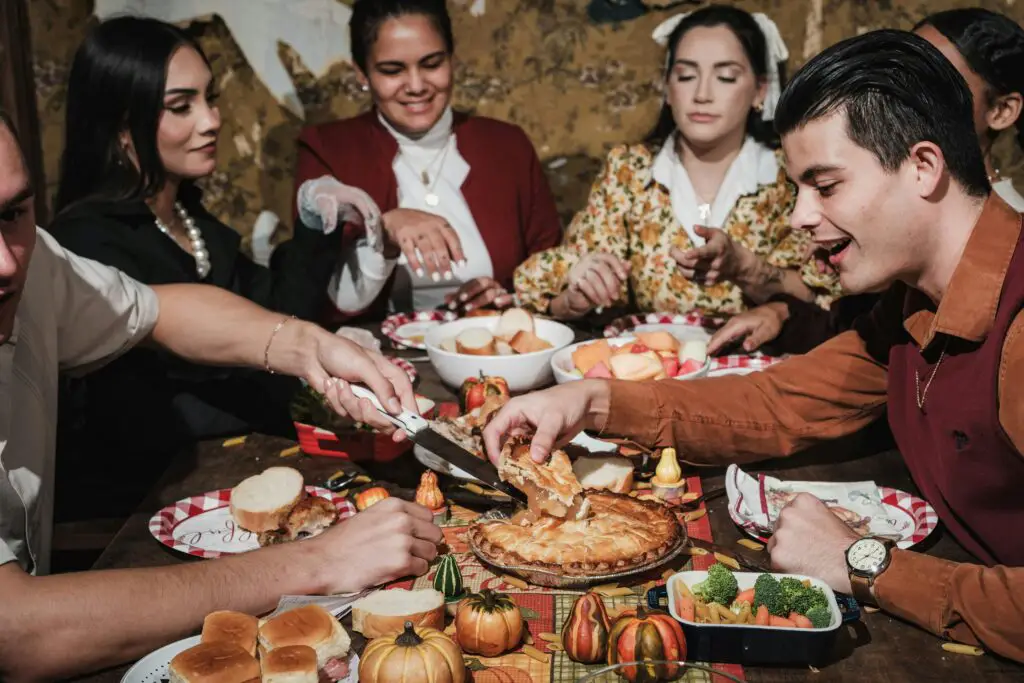
It didn’t matter how good the food smelled or how hungry you were—if someone wasn’t at the table yet, you had to wait. If you tried sneaking a bite, you’d get a look that made you instantly drop your fork. The worst part was when you were so close to taking that first bite, only to be stopped at the last second.
It always seemed like the slowest eater was also the last person to sit down, making the wait feel even longer. And if you complained? That just added more minutes to your suffering as someone reminded you about manners and patience.
6. No Singing at the Table

It didn’t matter if your favorite song was playing in your head or you had a catchy jingle stuck in your brain—dinner was not the time for a concert. One hum too many, and you’d be shut down with a sharp glance or a stern, “No singing at the table.” Some families even believed it was bad luck, though no one could ever explain why.
The real challenge was when a song came on the radio during dinner, and you had to physically restrain yourself from singing along. You’d mouth the words silently or tap your fingers under the table, hoping no one noticed. But if you slipped and let out a lyric? That look reminded you that meals were for eating, not performing.
7. No Playing with Your Food

If you started sculpting mashed potato mountains or making a spaghetti mustache, you were met with instant disapproval. Dinner was not an art project, and playing with your food was a surefire way to get “the look.” If you were particularly bold and tried sneaking a few extra minutes of fun, you’d probably hear, “Stop playing and eat.”
The funny thing was, grown-ups got to mix their food together or dip things in sauces without consequences. But if a kid so much as poked their peas into a smiley face? That was apparently unacceptable.
8. No Leaving the Table Without Permission

Even if you were done eating, you couldn’t just stand up and walk away. You had to ask if you could be excused, or else you’d get a look that told you to sit back down. If you forgot and started to leave, someone would clear their throat loudly, signaling your mistake.
The worst was when you had to sit through endless grown-up conversations that had nothing to do with you. You’d fidget, stare at the clock, and hope someone took pity on you. But if you sighed too loudly or looked bored? Another look.
9. No Slurping
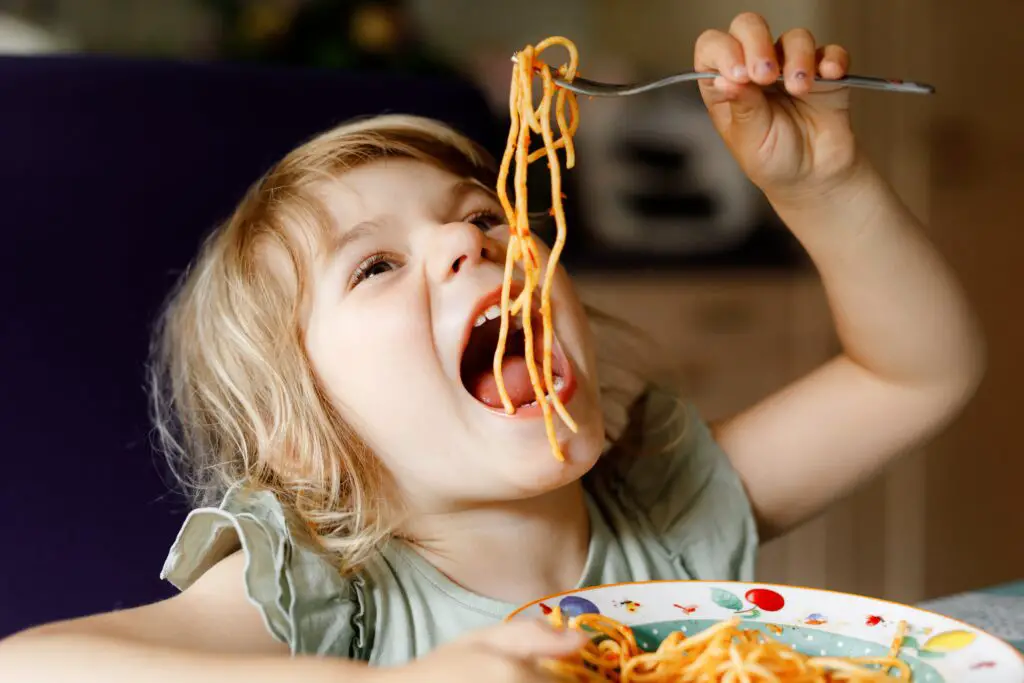
If you made the mistake of slurping your soup or drink, you’d be met with horrified stares. It didn’t matter if you thought it was fun—slurping was not acceptable. Some adults would even mimic the sound back at you, just to show how annoying it was.
Even the tiniest slurp was enough to trigger a response. You quickly learned to sip everything carefully, even if it meant burning your tongue on hot soup just to stay quiet.
10. No Putting Your Feet on the Chair
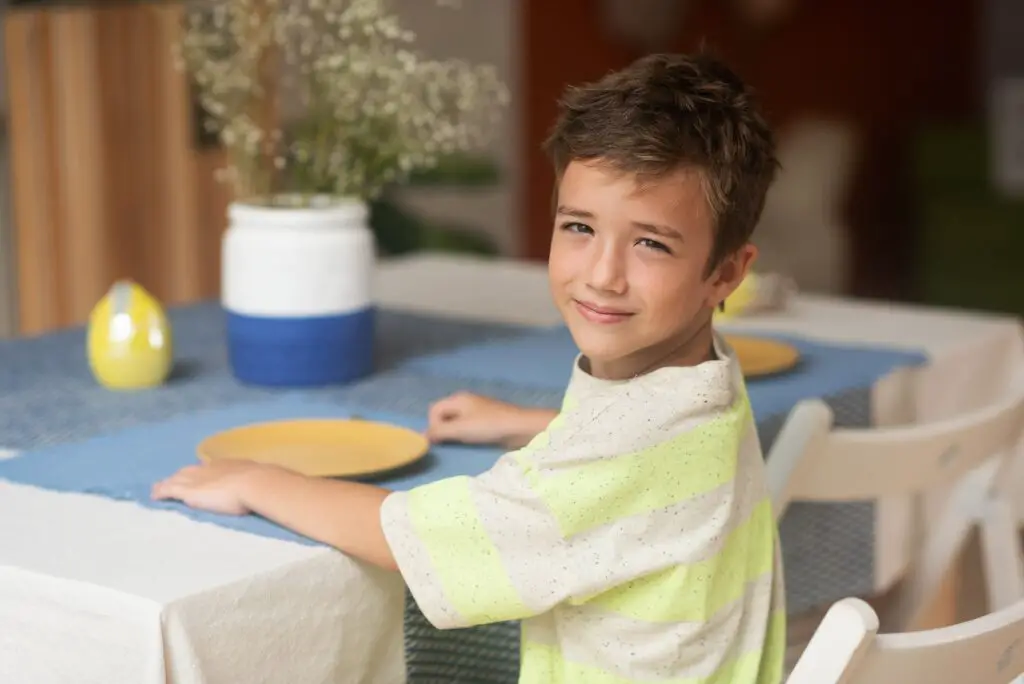
If you got too comfortable and pulled your feet up onto the seat, you’d immediately get a look that meant business. Some families had an unspoken rule, while others straight-up called you out. “This isn’t the couch!” was a common scolding.
You could try tucking your legs under, but if you got caught? Down they went. It was just one of those things you weren’t allowed to do, no matter how comfy it felt.
11. No Gulping Your Drink Too Fast
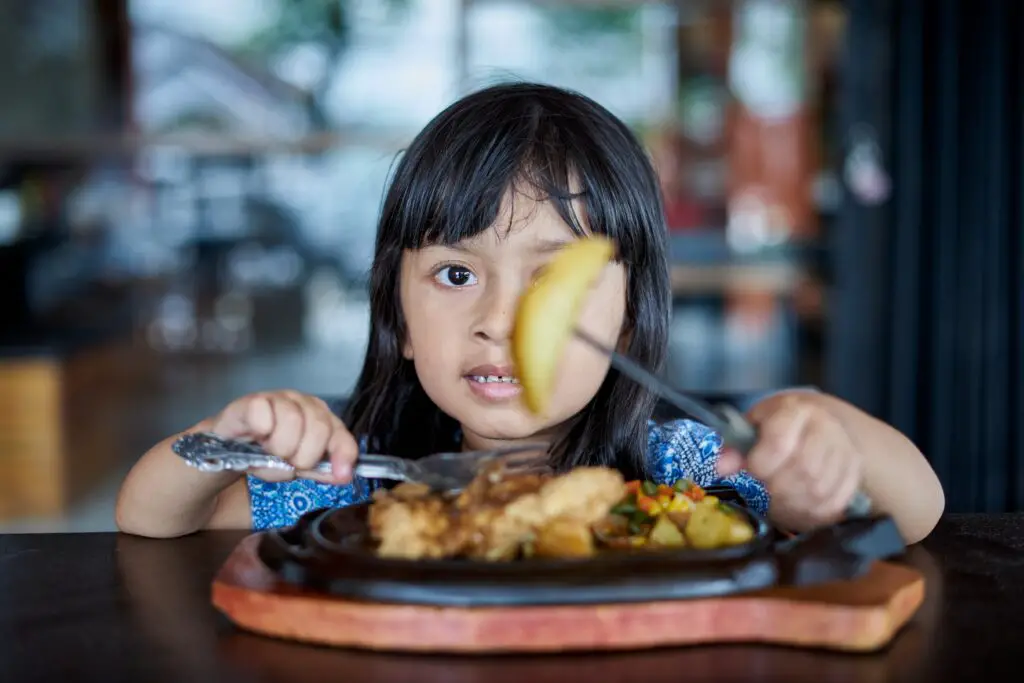
Chugging down a whole glass of milk in seconds was practically a talent, but it also earned you a warning look. “Slow down, it’s not a race” was a classic response. If you slammed your cup down dramatically afterward? Even worse.
You learned to pace yourself, even if it meant suffering through a dry bite or two before taking another sip. Grown-ups had an uncanny ability to notice the exact moment you drank too much at once.
12. No Playing with Silverware

Tapping your fork like a drumstick or spinning a spoon between your fingers was practically second nature for fidgety kids. But the second you started doing it at the dinner table, you’d get a look that made you freeze mid-motion. “This isn’t a toy” was always the go-to reminder, often delivered in a sharp whisper. If you ignored the first warning and kept going, your silverware might mysteriously disappear from in front of you. Suddenly, you were left with nothing but a plate of food and the realization that you’d pushed your luck too far.
The worst offense was letting your knife or spoon clatter onto the plate, causing an earsplitting noise that made everyone jump. That usually earned you a sigh, an eye-roll, or even a full-blown lecture about table manners. It didn’t matter that sometimes the grown-ups made noise too—you were expected to be perfectly quiet with your utensils. Eventually, you learned to channel your fidgeting elsewhere, like quietly bouncing your leg under the table instead.
13. No Complaining About the Food

If you made a face or muttered, “I don’t like this,” you’d get a look that made it clear you were out of line. The usual response? “You’ll eat what’s in front of you.” Even if you only hesitated for a second before taking a bite, someone was already watching you, making sure you didn’t dare push your food around. Heaven help you if you actually said something dramatic like “This is gross.” That kind of disrespect was completely unacceptable, and you’d probably get a stern talking-to about being grateful.
Some families took it even further, with the dreaded “There are starving kids who would love to have this meal” speech. That guilt trip was enough to make you at least pretend to enjoy whatever was on your plate. The funny thing was, even if adults didn’t like something, they could just skip it with no consequences. But kids? No such luck. You had to eat at least a few bites, or else suffer through a dinner filled with heavy sighs and disapproving looks.
14. No Taking the Last Piece Without Asking

The last roll, the final slice of pie, or the last bit of mashed potatoes sitting in the serving dish—it was all sacred. If you reached for it without checking first, you’d get a look that stopped you in your tracks. “Did you ask if anyone else wanted that?” was the dreaded question that instantly made you feel guilty. The only right response was to awkwardly offer it back, even though you really wanted it. Sometimes, someone would wave you off and let you have it, but other times, you had to sit back and watch as the prize went to someone else.
The worst was when you thought no one cared, only for a sibling or cousin to suddenly claim they were saving it for later. If you had already taken a bite, the drama that followed was unbearable. Parents would have to step in to referee the situation, while you sat there wishing you had just waited. Eventually, you learned to play it safe—always ask, always offer, and never assume. Because breaking this rule didn’t just get you “the look.” It could get you a lifelong reputation as the person who stole the last piece.
